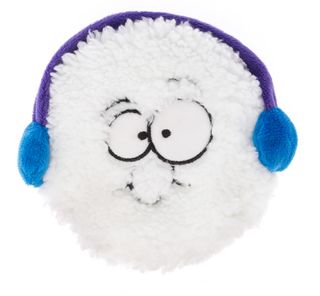Animal Behavior
Three Reasons Why Pets Are More Pampered Today
The psychology behind the elevated stature of pets.
Posted December 23, 2016
Hanging on the mantel of the Petersen home are stockings for Jordan, Jennifer, Stinky and Kippy. Stinky is a cat, Kippy is a dog and Jordan and Jennifer are “mom” and “dad” to these lucky pets. Stinky and Kippy will find special treats and toys on Christmas morning - but they’ll also be subjected to photo sessions wearing assorted costumes and collars, including a furry belted reindeer coat for Kippy and a sparkly green and red collar for Stinky (who is less tolerant about costuming).

The Petersen family isn’t unusual. According to a recent survey commissioned by PetSmart, 82% of U.S. dog owners have bought their pooch a present over the holidays, 61% of pet owners have hung a stocking and 60% of pet owners have included their pets in holiday cards and photos. The number of people buying canine costumes has increased 24% since 2010 and the amount spent on pet costumes has increased 40% during the same period.
Enthusiastic spending on holiday goodies and costumes for pets is part of a larger, year-round and permanent trend - the elevated stature of pets in our lives and a corresponding increase in spending. Last year, according to The American Pet Products Association, consumers spent more than $60 billion on their pets - a new record that’s predicted to be broken again this year. That’s more than double what Americans spent on pets a decade ago.
Part of the surge in pet spending is simply because there are more pets out there. In 1988, 56% of households had a pet. Today pets are part of 65% of homes. But that’s not a large enough increase in ownership to account for such a hefty surge in spending. People are also spending more per pet than ever before. Here’s the psychology behind that spending.
1. Pets are stress-busters and we need that now more than ever.
In 1994, roughly 15% of Americans reported increased anxiety in their lives. By 2009 that number had risen to 49% and in 2014, 75% of those surveyed admitted to growing anxiety.
When we cuddle, play with and even just look at our pets we get a hefty boost of oxytocin, our body’s naturally occurring feel-good, stress-relieving, emotional-bonding hormone. And by the way, so do our pets. Which makes all parties more relaxed and happy - and more deeply bonded.
Almost 95% of pet owners say their pet makes them smile at least once a day. It’s no wonder that multiple studies show that pets lower blood pressure, alleviate depression, and boost mental and physical resiliency.
2. Pets have more status today.
There is less hierarchical distance and more equality between parents and their kids today, and the same is true for pets. Fully 91% of pet owners consider their pet to be a member of the family, and 81% say pets are equal members of the family. Pet lovers themselves recognize that there has been a shift in the status of pets within families - 60% of adults say the don’t remember their childhood pets as having the exalted status the pets in their lives have today.

Still need more proof? There are 1 million dogs in the U.S. that have been named the primary beneficiary of their owners will.
3. Pets fulfill our need to nurture.
An unprecedented number of people live alone today - one in seven Americans. Plus, our years without children stretch longer on both ends. Empty nesters live longer and people have children later in life. Regardless of a person’s household composition, the need to nurture is universal. Which is why 78% of animal owners think of their animals as their children and themselves as pet parents not pet owners. In fact, 58% call themselves “mom” or “dad.”
When you’re a pet parent rather than an owner you’re more likely to want to give your pets a human experience. That would be a partial explanation for the burgeoning category of pet food and treats that look a bit more like something a human would eat.
The higher status and emotional power of pets in our lives contributes to a sentiment that pets deserve more today. Whether it’s stays in pet hotels rather than kennels, gourmet pet food, more toys or better healthcare it’s not surprising that people are willing to spend more on their pets than they did a decade ago. And given the emotional support, connection and happiness they provide, pets are still a bargain.


